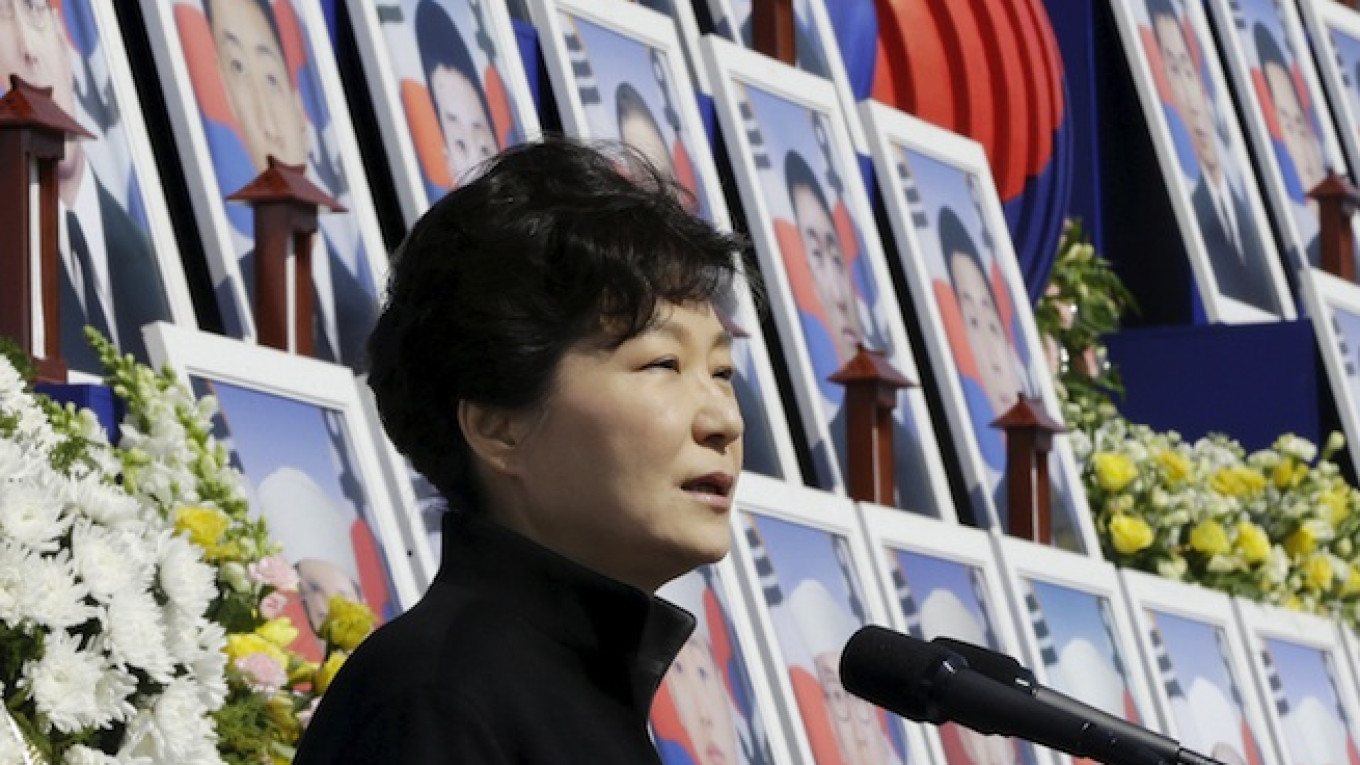SEOUL — South Korean President Park Geun-hye will not attend an event in Moscow to mark the end of World War II in Europe and will instead send an envoy, an official said on Monday, dashing the possibility of a rare meeting with the North's leader.
Russia has said the North's Kim Jong Un will attend the May 9 celebrations marking the 70th anniversary of the war's end, which would be his first trip overseas since taking power in 2011 after the death of his father.
"The president will not be going," a South Korean government official said on Monday, speaking on condition of anonymity.
The country's foreign ministry said over the weekend that a ruling Saenuri Party member of parliament's foreign affairs committee, who is also a special aide to Park, would attend as her special envoy.
The government official and the foreign ministry did not elaborate on why Park had chosen not to attend.
If Park and Kim were both to travel to Moscow for the event, it would make possible only the third summit between the leaders of the rival Koreas, which remain technically at war under a truce ending their 1950-53 conflict.
Isolated North Korea has declared 2015 to be a "year of friendship" with Russia and has indicated plans to develop closer economic and political ties between the two countries.
State media said North Korean armed forces minister Hyon Yong Chol left Pyongyang for Moscow on Monday to participate in a conference on international security. Hyon is scheduled to deliver a rare speech at the April 16-17 conference, South Korea's Yonhap news agency said.
Attempts at dialogue between the North and the South are at a stalemate, following the 2010 torpedoing of a South Korean navy ship and the bombing of an island in the South. Pyongyang denies any role in the sinking of the naval ship Cheonan, and said it was provoked into shelling the island.
The first summit in 2000 led to a period of rapidly warming ties after decades of hostility. The second summit was held in 2007 with more promises of exchanges, but relations cooled after a conservative president took office in the South in 2008.
A Message from The Moscow Times:
Dear readers,
We are facing unprecedented challenges. Russia's Prosecutor General's Office has designated The Moscow Times as an "undesirable" organization, criminalizing our work and putting our staff at risk of prosecution. This follows our earlier unjust labeling as a "foreign agent."
These actions are direct attempts to silence independent journalism in Russia. The authorities claim our work "discredits the decisions of the Russian leadership." We see things differently: we strive to provide accurate, unbiased reporting on Russia.
We, the journalists of The Moscow Times, refuse to be silenced. But to continue our work, we need your help.
Your support, no matter how small, makes a world of difference. If you can, please support us monthly starting from just $2. It's quick to set up, and every contribution makes a significant impact.
By supporting The Moscow Times, you're defending open, independent journalism in the face of repression. Thank you for standing with us.
Remind me later.


